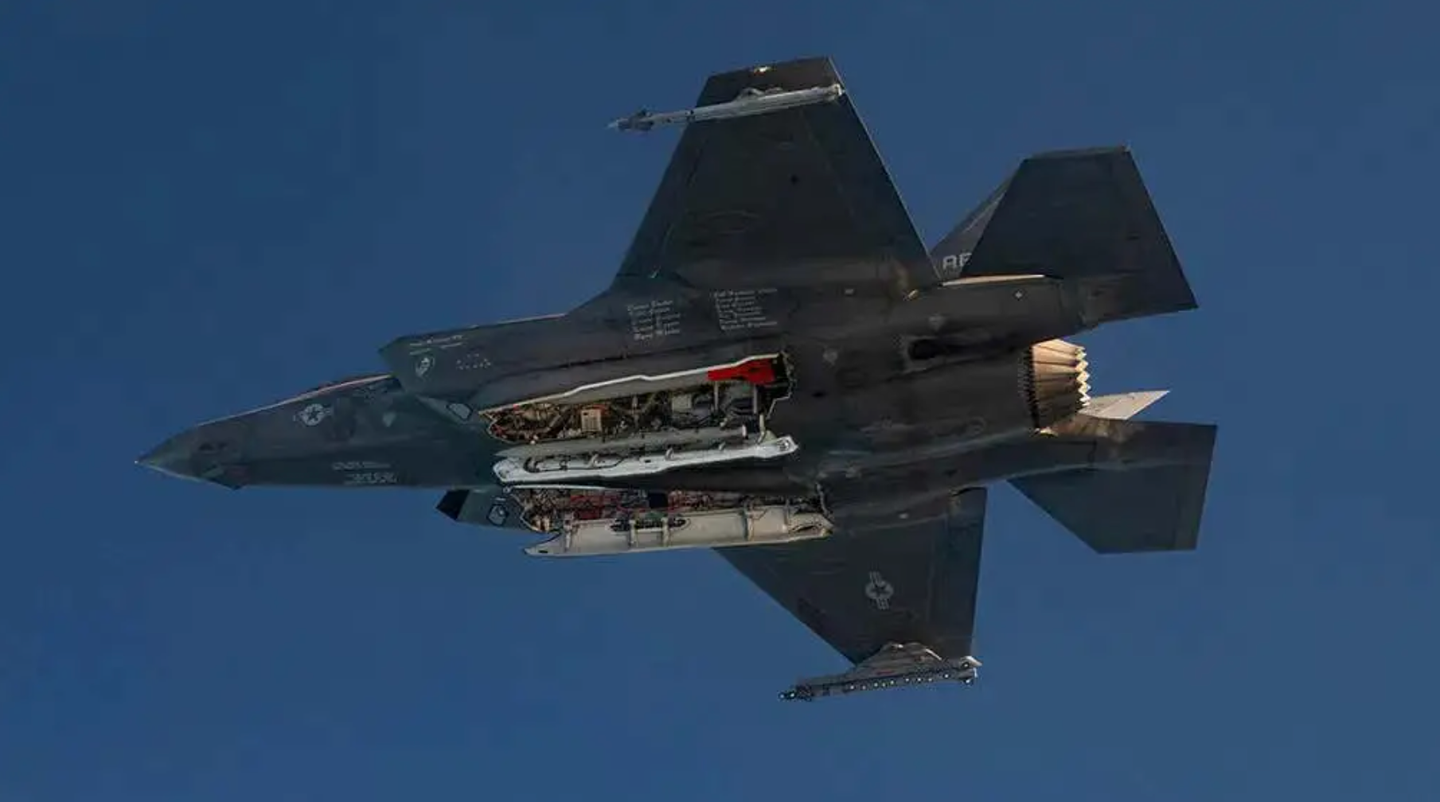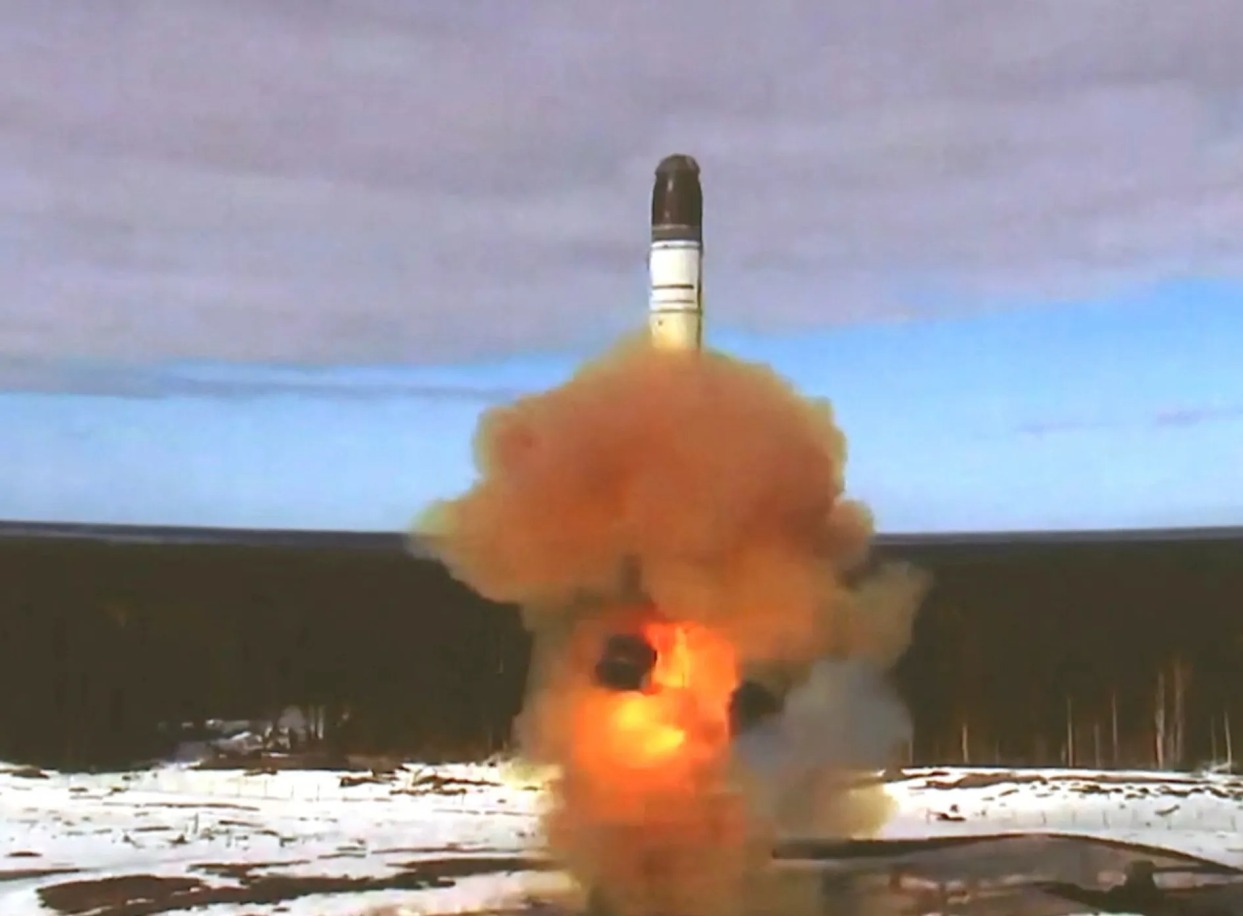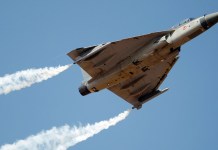The Royal Netherlands Air Force (RNLAF) will fully transition from the F-16 fighting falcons to the advanced F-35 aircraft for NATO’s nuclear deterrence mission on June 1, 2024, the Dutch government announced.
This strategic shift marks a major milestone, solidifying the Netherlands’ position as a key player in NATO’s nuclear deterrence framework and making it the first European nation to transition to the F-35.
On May 30, the Netherlands Minister of Defense, Kajsa Ollongren, formally informed the Dutch House of Representatives about the impending transition, signaling a meaningful step forward in the country’s defense strategy.
The transition represents a technological upgrade and a reaffirmation of the Netherlands’ commitment to NATO’s overarching security framework.
The transition process initiated many years ago has seen rigorous testing and certification procedures to ensure the F-35’s suitability for the nuclear role. In November 2023, the RNLAF’s Air Combat Command confirmed that the F-35 had achieved “initial certification for the deterrence mission”.

Subsequent developments, including the full certification of the F-35A to carry the B61-12 thermonuclear bomb in March 2024, have solidified the aircraft’s preparation for its new role.
Meanwhile, the Ministry added that the RNLAF has already begun integrating the F-35 for conventional tasks. On March 29, 2024, Dutch F-35s replaced F-16s in the NATO Quick Reaction Alert (QRA) detachment, marking the conclusion of an era where the F-16 had served since 1981.
Volkel Air Base will serve as the home base for the Dual-Capable Aircraft F-35 squadron assigned to the nuclear role, mirroring the arrangement with the F-16s. The base currently hosts 10-15 B61 bombs, with plans to deploy the new B61-12 shortly.
The Netherlands Ministry of Defense issued a press release stating that the transition to the F-35 reaffirms the country’s unwavering commitment to NATO’s nuclear deterrence objectives.
The Ministry stressed the critical role of NATO’s nuclear capability in preserving peace, preventing coercion, and deterring aggression, underlining the significance of collective security efforts.
Overall, the F-35’s advanced capabilities, including stealth technology and advanced sensors, make it a formidable addition to NATO’s deterrence forces. The RNLAF’s transition to the F-35 ensures that the alliance remains agile and prepared to address evolving threats, thereby maintaining stability and security in the region.
Russian Expert Proposes ‘Demonstrative’ Nuclear Explosion
As the Royal Netherlands Air Force (RNLAF) prepares to transition from the F-16 to the F-35, the backdrop of this key shift is marked by escalating nuclear rhetoric from Russia.
Dmitry Suslov, a senior member of the influential Moscow-based Council for Foreign and Defense Policy, has proposed a “demonstrative” nuclear explosion to deter Western support for Ukraine’s military actions against Russia.
Suslov represents the newest voice among Russian security experts and lawmakers suggesting that Moscow should conduct a nuclear bomb test as a form of intimidation amidst the ongoing Ukraine conflict.
Suslov’s proposal, published in the business magazine Profil, advocates a non-combat nuclear test to convey Russia’s readiness to escalate if the West continues to support Ukraine’s military strikes inside Russian territory.
He argued that the political and psychological impact of witnessing a nuclear explosion on live television would remind Western leaders of the deterrent power of atomic weapons, which has prevented major conflicts since 1945.

Suslov’s suggestions extend beyond a single nuclear test. He recommended that Russia conduct strategic nuclear exercises and issue warnings to any country whose weapons are used by Ukraine to attack Russia.
Moscow, he asserted, should reserve the right to target those countries’ assets globally and potentially use nuclear weapons if those countries retaliate conventionally.
This recommendation comes a day after President Vladimir Putin warned Western countries against allowing Ukraine to use Western arms to target deep inside Russia. Putin said such actions could trigger a global conflict, noting the grave risks involved.
Putin expressed his belief that Western military instructors were covertly present in Ukraine, posing as mercenaries. He warned that foreign countries’ official deployment of such instructors would constitute further escalation and bring Europe closer to a serious conflict.
While Dmitry Suslov does not hold an official position within the Russian government, his think tank has garnered praise from President Vladimir Putin.
Putin has publicly recognized that government bodies occasionally integrate policy concepts from the influential Council for Foreign and Defense Policy into their decision-making, lending additional credibility to Suslov’s suggestion.
The Kremlin, however, has not responded to Suslov’s proposal. It has reiterated that Russia’s nuclear policy remains unchanged. Earlier this month, the Kremlin signaled its displeasure with what it sees as increasingly aggressive Western rhetoric by ordering tactical nuclear weapons drills.
- Contact the author at ashishmichel(at)gmail.com
- Follow EurAsian Times on Google News




